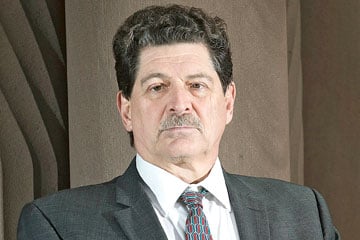
An Ontario Superior Court judge has ruled that defence counsel cannot disseminate disclosure they receive to the media.

An Ontario Superior Court judge has ruled that defence counsel cannot disseminate disclosure they receive to the media.
In R. v. Mossaddad, Justice Mark Edwards found defence counsel cannot share Crown disclosure for reasons unrelated to defending the criminal proceedings.
Lawyers say the decision has implications for what criminal defence counsel can do with the disclosure they receive from Crowns before trial.
The ruling was on an application by criminal defence lawyer Daniel Brodsky, who requested direction from the court after his client, Cameron Mossaddad, instructed him to share disclosure with the media.
“The defence bar fought long and hard to enlist courts to enforce the right to reasonable disclosure,” Brodsky says.
“But the questions of what we do with the disclosure and are permitted to do with the disclosure, the answers to those questions are not as clear as you might think.”
Brodsky’s client is accused of murdering his grandmother, but he claims he has been framed.
Brodsky says Mossaddad wants to share the disclosure with the media in the hope that it would further an investigation that would help his case.
The question of whether counsel is bound by a deemed undertaking not to disseminate disclosure to the public had not been specifically addressed in Ontario’s jurisprudence before Edwards’ ruling.
Edwards, therefore, had to reach outside of Ontario and consult decisions from other provinces for guidance on whether there is an implied undertaking.
“I am satisfied, having reviewed the jurisprudence across this country, that the time has come for this court to recognize that whether or not the Crown disclosure provided to defence counsel for a self-represented accused is the subject of a written undertaking, that a deemed undertaking nonetheless would apply such that the only basis upon which the Crown disclosure may be used would be in the context of providing a full answer and defence to the criminal proceedings,” Edwards wrote in the decision.
Edwards found that if defence counsel has received disclosure that is not the subject of a written undertaking, a deemed undertaking nonetheless applies, and it should not be disseminated to the public without further direction of the court.
Lawyers say the implied undertaking begins as soon as disclosure is received and continues indefinitely.
This means that lawyers would not be able to share disclosure with the media or the public even after a trial has concluded, unless disclosure becomes an exhibit at trial and there is no publication ban.
Edwards ruled that Brodsky had no legal basis to share disclosure with the media, as there was an absence of evidence from Mossaddad that showed the explicit purpose for disseminating such information.
“If defence counsel or an accused has received disclosure that is not the subject matter of a written undertaking, I am of the view that a deemed undertaking nonetheless applies to such disclosure and no use may be made of such disclosure outside of the context of the criminal proceedings without further direction from the court,” the ruling also notes.
Criminal defence lawyer Amanda Ross says the decision is helpful as it brings some clarity that would have otherwise been lacking. She says that in her practice she has always interpreted use of Crown disclosure as being subject to an implied undertaking, even in the absence of a written one.
She says that the written undertaking has almost served as a reminder for counsel, students and self-represented accused as to what their obligations are. She says that in some courthouses, written undertakings will come with every piece of disclosure and in others it will only be received at the beginning of a case.
Ross says this case provides some good guidance to lawyers as to why disclosure cannot be shared with the public.
“I think that it provides a place to hang your hat, because in some cases, there are questions clients have for you that can be difficult to answer because there is always a competing interest in every criminal case,” she says of the decision.
“You have an obligation to your client obviously to vigorously defend him or her, uphold his rights and advance their case against the state. And at the same time, as lawyers, we’re all officers of the court and so there can be some conflict there.”
She adds that having judicial input on issues like this is helpful for lawyers so that they can explain to their clients why they cannot do something they are instructing them to do.
For Brodsky, however, the decision is not the end of the issue.
He says there are a lot of remaining questions around disclosure and that the decision brings the issue to the attention of other judges and the bar so that these issues can be litigated and resolved.
“It really does demonstrate that there’s still a long way to go,” he says.
If his client is ultimately unsuccessful at trial, Brodsky says the issue of what he could do with disclosure could be brought up in an appeal.
Ross says following this decision, defence lawyers will be very hard-pressed to say they did not know they were not allowed to release disclosure to outside party or to publicize pieces of disclosure.
“This decision is a very firm warning to be very careful and circumspect in how you deal with disclosure,” she says.